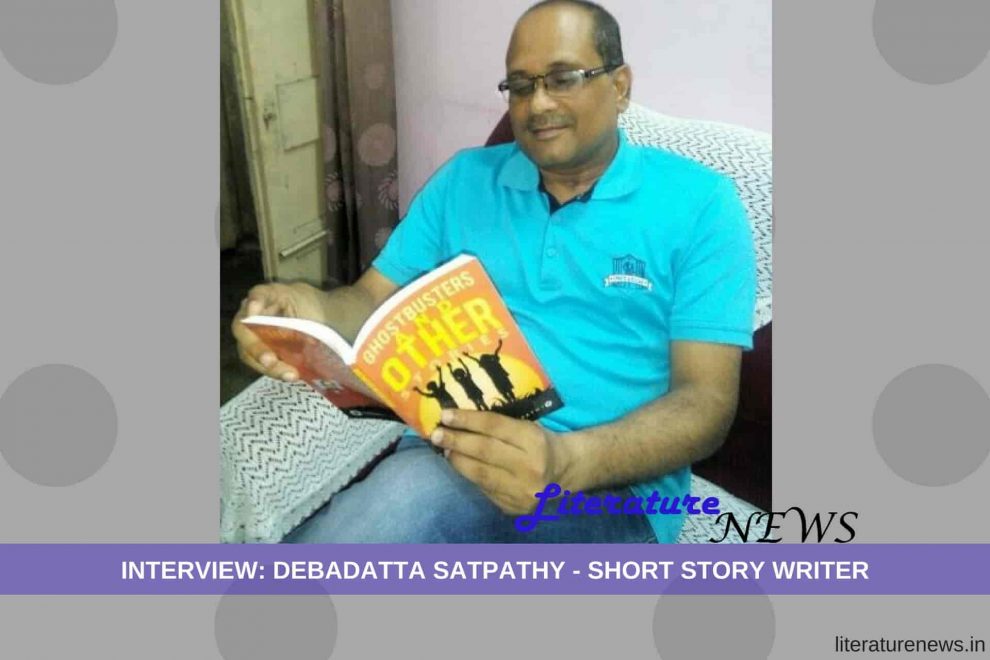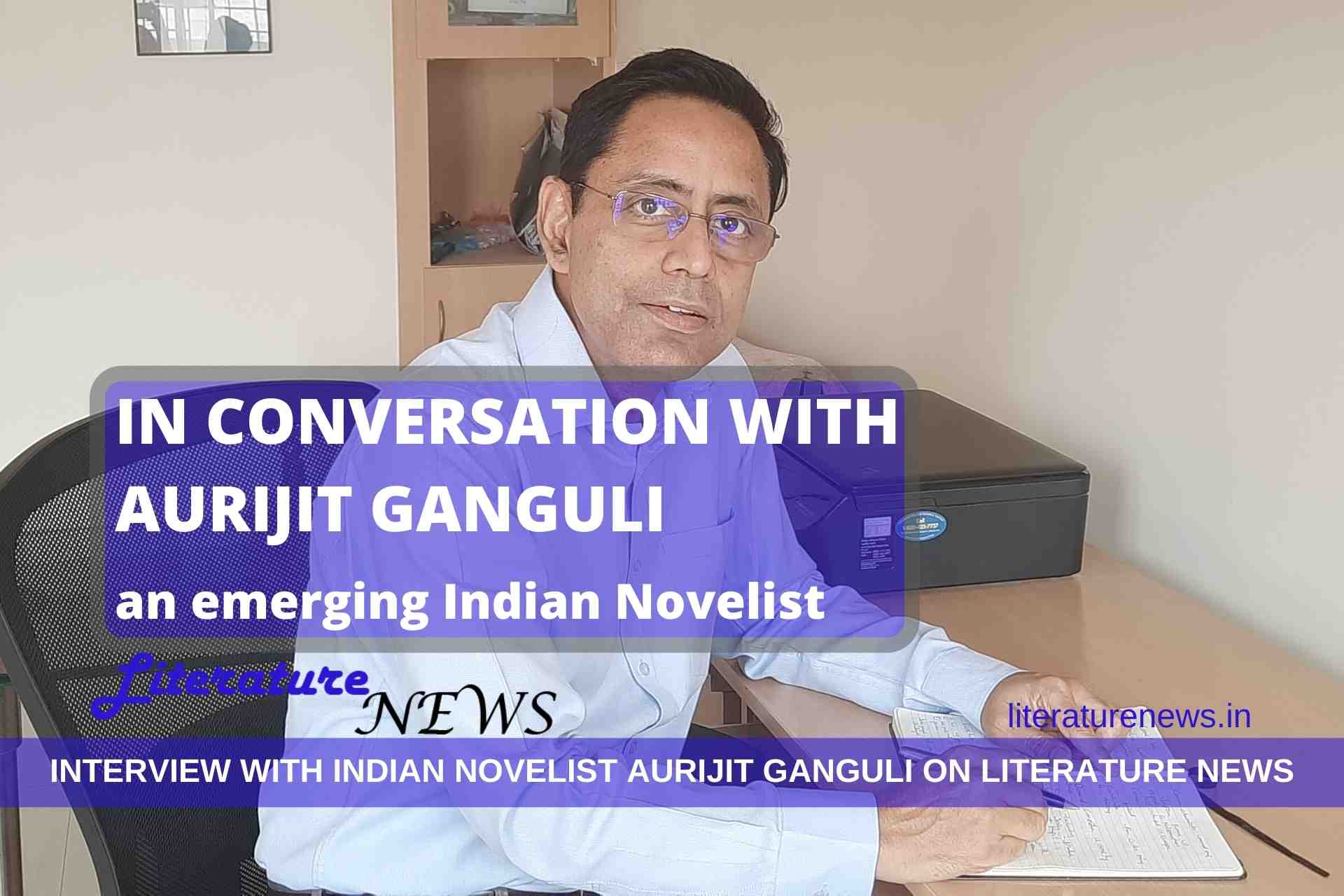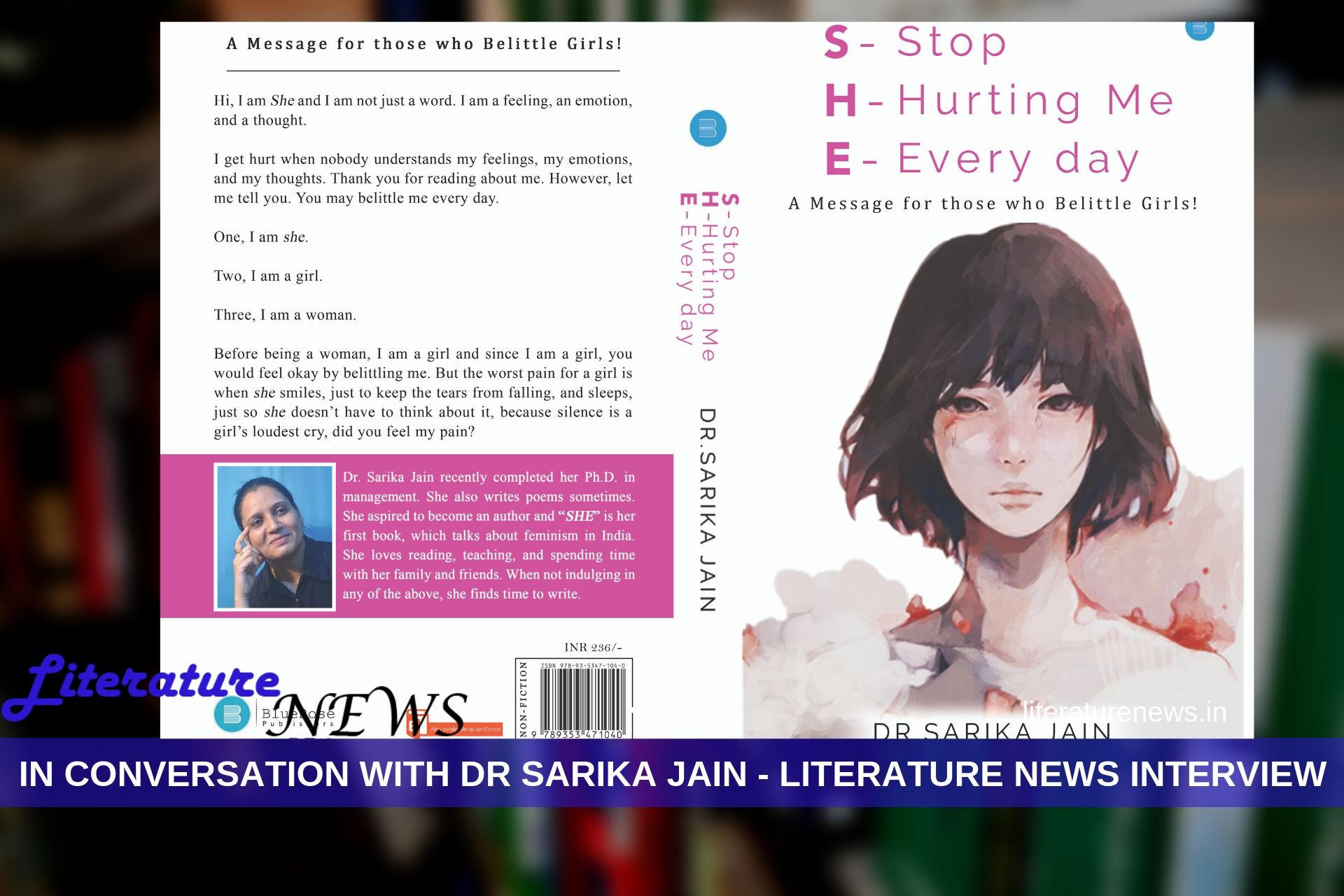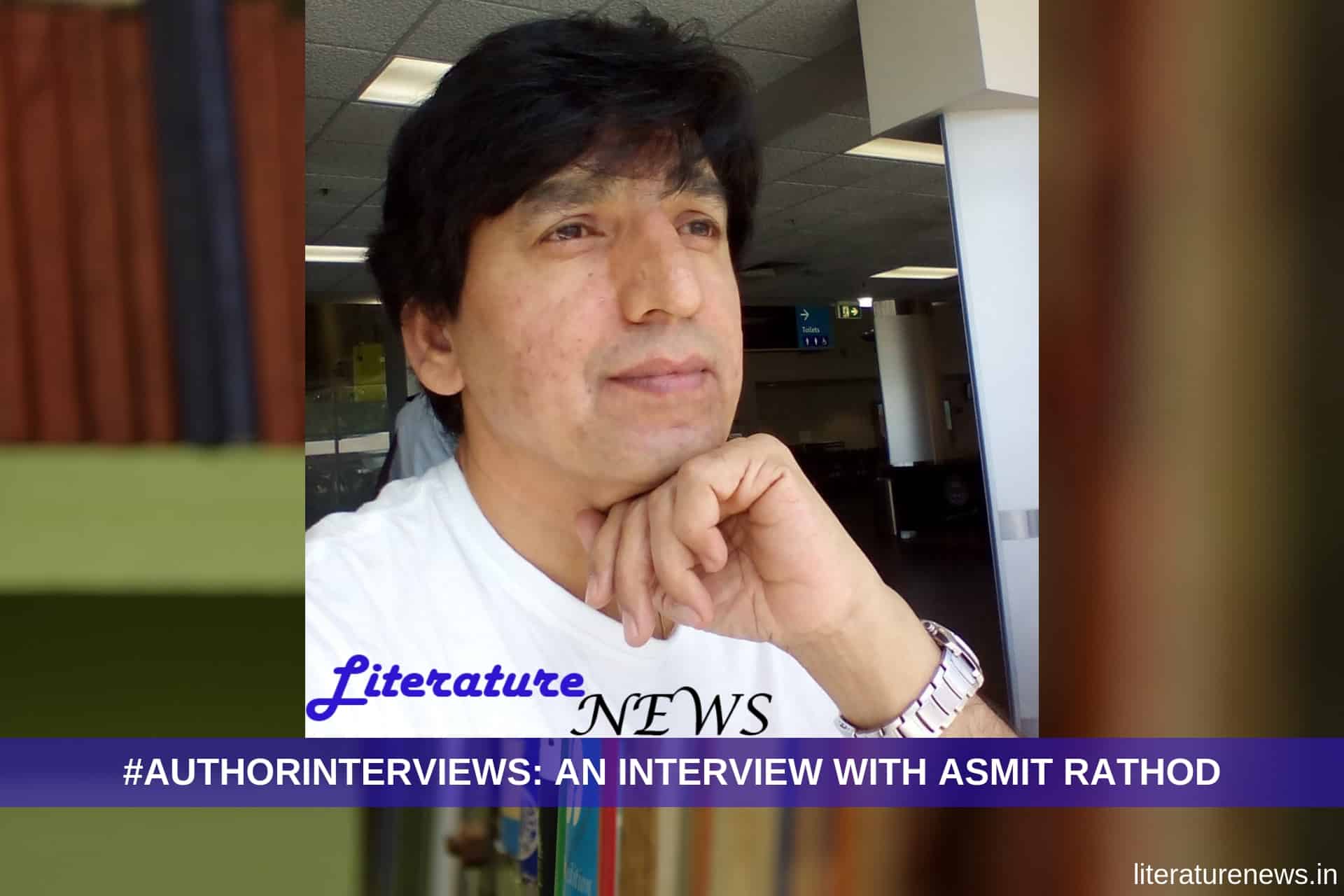Read an interview with the popular short story writer from Odisha, Debadatta Satpathy. Debadatta Satpathy has written, recently, a collection of short stories entitled Ghostbusters and Other Stories. The book has been received very warmly by the readers, book critics and top Indian book bloggers. In the conversation below, Debadatta Satpahy answers the questions of Amit Mishra, a contributor to Indian Book Critics. We hope you will like the interview.
Amit Mishra: Debadatta, why do you choose to write short stories and prefer it over all other genres of literature? Is there some definite reason? Please tell us.
Debadatta Satpathy: I was inspired from the very beginning by the short stories of Mr Manoj Das and especially the way he finishes the story by adding an element of surprise. In my view, short stories, if presented properly, are breezy and unputdownable, unlike a novel, where you have to keep the interest of a reader alive for 300 pages. There are so many facets of human life, all exciting yet distinctly different from each other. So the materials for writing short stories are quite large. However, you should have the good sense to put them in a thrilling way to amuse the reader.
Amit Mishra: Your book seems to generate the nostalgia or a kind of longing for the events which we (perhaps) could not live to the fullest when we actually lived it. This is a remark – do you think this is in the right direction? What was your purpose in writing those beautiful short stories?
Debadatta Satpathy: Every one of us long for those bygone days of school and college. Though hardly 10 years, they are fondly remembered. Each one of us must have met a lovable goon-like friend, a treacherous glib talking colleague and a rogue teacher. All of us have our childhood crushes. Sadly, time corrodes those gentle remembrances. Through my stories, I have tried to re-live that era, when ‘on a high’ meant the top of a mountain and not the effect of spirit and ‘opening a window’ implied seeing the azure sky and not Bill Gate’s software. Right or wrong is for the reader to decide. But yes, I think I have put those sweet-sour incidences in the correct perspective.
Amit Mishra: Please share with us the first feedback that you have ever got for your book, Ghostbusters and Other Stories. Who gave it and what was it and what did it mean to you at that time?
Debadatta Satpathy: It came from Sravani, the daughter of ‘Miranani’, my cousin sister and one of the characters of “Ghostbusters”. She is an MBBS and yet was extremely happy reading the stories of her mother’s childhood. My book has been read by so many young students and everyone has loved it. That meant a lot to me as I was not very sure whether today’s youngsters would appreciate stories of the 80’s. I am pretty confident now that no matter during which age your stories are set if the content touches the heart of the reader, you have done your job. It’s a misnomer that current generation only loves high voltage romances.
Amit Mishra: You have decided to keep your stories simple and genuine in the terms of emotions. Why didn’t you think to use hidden narrative or the metaphors to present your points? And what are your views on the narrative which are rather clumsy and at times too much overdone?
Debadatta Satpathy: There are two ways of presenting a story: with hidden narratives and metaphors as you have suggested or to depict it as it is. If you go through my first book, “House of Bougainvillea and other stories”, it’s a celebration of metaphors. For “Ghostbusters”, I have decided to be as plain and simple as possible. After all, the purpose is to entertain a reader and not to test his emotional intelligence too much. Maybe this way, some of the narratives appear to be clumsy. So it is a choice actually, using which way you can appeal a reader. Ultimately, he or she is the final arbiter.
Amit Mishra: Now that you are an author with two titles under your belt, how do you strike a balance between your career as an employee of senior rank and as a writer?
Debadatta Satpathy: Tough. Unlike the USA, here we do not have the freedom to chase your dream. But then, you have to strike a balance between your job and passion.
Amit Mishra: Do you also think that being an author gives you the chance to understand humanity and aspects related to it a little better? Does the author have an edge in the terms of thoughts than that of the readers? You seem to have captured it very well in your short stories.
Debadatta Satpathy: In my view, everybody understands it, only a few people bother to put it in a presentable format which can appeal a 3rd person. I will give you an example. Half of my colleagues have gone bald. It can appear funny to a hirsute guy, but getting bald is never a pleasurable experience for the victim. Keeping my own perspective in the background, I wrote a story “It’s a bad, ba(l)d world” that appeared in “House of bougainvillaea and other stories”. I thought it was quite humorous for I am still getting feedbacks even after 4 years. Or take the matter of a self-styled leader who hoodwinks his followers for selfish gains. Tell me, who has not come across such types of persons? But we just shrug and move on. I thought why not depict such a character in a story? So came “The absentee leader” in “Ghostbusters”.
Amit Mishra: What are your views on the concurrent literature in India? Do you think there is a field of commercial literature which is emerging and the genuine literature has been pushed to some background?
Debadatta Satpathy: To an extent yes. But I will not blame commercial literature for that. In my view, the so-called “genuine” literature became too much of “genuine” for anybody’s comfort. It took me 6 months to finish “Midnight’s children”, reading it day and night while referring the Oxford dictionary for every 2nd word. What’s the use of such verbose tomes? In came Chetan Bhagat and his “Five-point-someone” became a game-changer. In my view, books have been brought to be “read” and not to be kept as show-pieces. That’s why those “genuine” books have failed to excite the new generation.
Amit Mishra: How often do you love to write? Do you also write poetry? And have you written short stories in Odiya language too?
Debadatta Satpathy: Generally on holidays and morning hours. I have started collecting material for my third book, which I think will again be a collection of stories. No poetry for me as yet. And though I would have loved to write in Oriya, the reader-base is too small and so is publishing business. Maybe in future, I will think of it.
Amit Mishra: For our readers, when are you planning to come up with another collection of short stories? In the future, might we ever see a novel with your name?
Debadatta Satpathy: As I said, I have started collecting material for my third book, which most probably will again be a collection of stories. And yes, in future, I may go for novel writing, but certainly not a coffee-table classic.
Amit Mishra: Indian Book Critics Team congratulates you on your success and we wish you best for the further plans, dear Debadatta!
Debadatta Satpathy: Thank you very much.






Add Comment